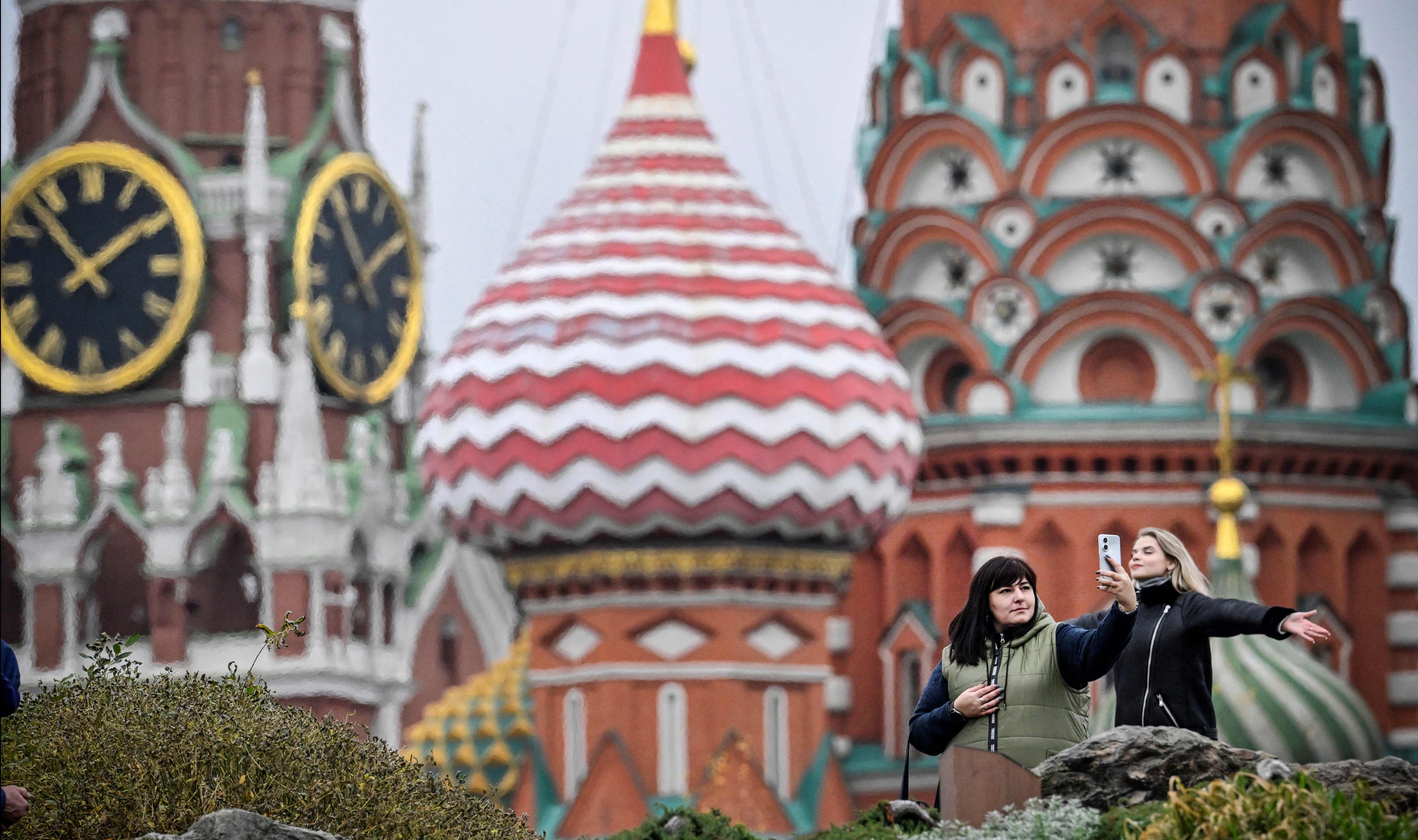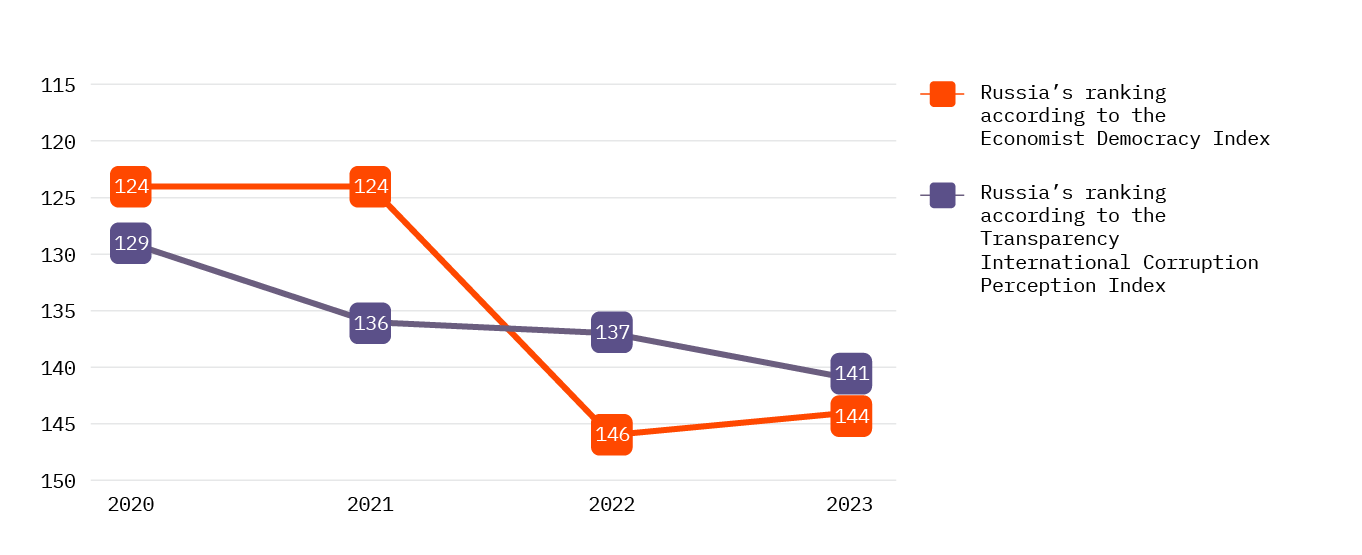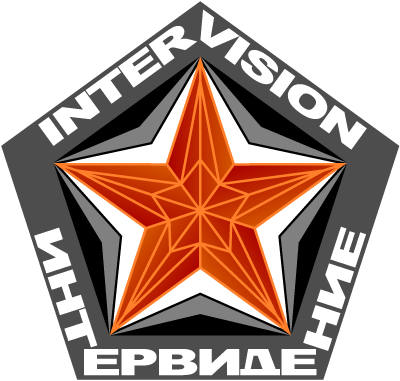2.1
Russia’s domestic politics impacted by the escalating costs of the war in Ukraine
Share:
20.12.2024
Eesti keelesRussia’s ruling elite maintains control through intensifying repression; it has effectively eliminated meaningful political opposition and curtailed freedom of speech and expression.
At the core of political decision-making is an ageing dictator who acknowledges only power politics, fixated on maintaining his grip on domestic power while striving to maximise Russian influence globally.
Domestic tensions rise due to political isolation, continued militarisation of society and growing war fatigue.
Resources are primarily directed towards warfare, causing stagnation in other sectors and rapidly declining living standards.
In 2024, Vladimir Putin was formally granted another term as President of the Russian Federation through a so-called election. This process was little more than a Kremlin-orchestrated simulation of democracy, offering voters no genuine choice. Deliberate actions by the Kremlin have shaped Russia’s current political landscape to exclude any competition with the ruling elite. Political activity and opinions deemed unfavourable to the Kremlin are aggressively suppressed through harsh repression, which has steadily intensified during the war, now reaching a level of severity comparable to that of the Soviet era.
Data collected by the independent rights group OVD-Info reveals that, between early 2022 and mid-2024, more than 20,000 people were arrested or prosecuted for expressing anti-war views. Most of these convictions are tied to the notorious “discrediting the army” clause, which has led to nearly 10,000 convictions, with 4,500 individuals receiving criminal sentences for political reasons, according to the OVD database. This uptick has been particularly evident since the onset of Russia’s full-scale war in Ukraine. Furthermore, numerous civil society organisations and activists have been branded as “foreign agents” or “undesirables”, effectively destroying their ability to continue operating. Meanwhile, Russia’s rubber-stamp State Duma continues to expand repressive legislation, with courts dutifully enforcing these measures.

Russia’s civil society has been almost completely neutralised
Source: Alexander Nemenov/AFP
As a result, civil society in Russia has been nearly extinguished. Although polls suggest that the unsuccessful and casualty-heavy war effort is increasing anti-war sentiment in Russia, these individuals have no outlet to realise their political will. Most either retreat into political apathy or opportunistically conform to state ideology. Among Russia’s political, cultural and economic elites, few appear willing to challenge Putin’s disastrous policies, fearing the loss of their position, assets or even their lives.
FEAR LEADS TO MOUNTING DOMESTIC TENSIONS
Putin’s regime appears unshakable, but tensions are building beneath the surface.
This does not mean the entire Russian population stands united behind their “leader for life”, endorsing dictatorship and bloody wars of aggression against neighbouring nations. Putin’s regime appears unshakable, but beneath the polished surface, internal tensions and contradictions are building. The regime primarily responds with harsher directives, restrictions and repression, offering no substantive solutions. With resources concentrated on sustaining the war and maintaining the military-industrial complex, development in other areas has nearly ceased, leading to rapidly declining living standards. At the same time, corruption, abuse of power and financial waste continue to plague all levels of government.
Serious issues are likely being recognised at the very top of the Kremlin’s power hierarchy. Putin’s latest term has coincided with numerous high-profile arrests of senior military officials on corruption charges, culminating in a reshuffle of Russia’s defence leadership. The unexpectedly announced personnel changes were likely driven by Putin’s aim to restore order within the Ministry of Defence, ensure unquestioning obedience and improve the efficiency of warfare. However, the reshuffle also implicitly acknowledges that things have not gone according to plan and that waging the war has become excessively challenging and costly for the state.
The newly appointed defence minister, former Deputy Prime Minister Andrey Belousov, is regarded within the Russian elite as a capable administrator and economic expert, but he lacks a military background. His appointment necessitated further personnel changes among the top leadership, including the replacement of the Secretary of the Security Council. Putin secured a soft landing for his long-time ally and former defence minister, Sergei Shoigu, by appointing him to this role.
To optimise resource allocation for military purposes and enhance the management of the defence industry, a dedicated division was established within the Presidential Administration to oversee state policy concerning the military-industrial complex. A new role of presidential aide for the defence industry was established within the Presidential Administration, assigned to Putin’s trusted ally Aleksey Dyumin, who also holds responsibilities in other areas alongside the military-industrial complex.
In addition to the increasing difficulty of securing funding for the war, these changes also underscore how critical it is for Vladimir Putin to end the war on terms favourable to him. It is almost certain that this objective is driven by his awareness that losers are not respected in Russia, and for reputational reasons alone, he must conclude the war with a result that can be portrayed as a victory. Thus, the Kremlin’s leader remains motivated to secure the resources necessary to continue the war, despite its costs far exceeding the original plans and the ever-growing price Russia is paying. In addition to immediate expenditures and human losses, the war’s cost includes reduced allocations to other sectors and the long-term effects of foregone investments.

Changes in Russia’s position in international studies comparing levels of democracy and corruption among states
Alongside declining public services, Russians are increasingly required to directly contribute to covering the financial costs of the war. At the beginning of 2025, a tax reform was implemented, introducing higher income tax rates on both individuals and businesses. Although the Kremlin sought to justify the introduction of a five-tier progressive income tax system as necessary for ensuring social justice, it is clear that the primary goal is to finance excessive war expenditures.
BREAD AND CIRCUSES:

Russia’s ruling elite is taking a hands-on approach to planning the Intervideniye song contest, a Eurovision alternative
Excluded from Eurovision, Russia is reviving the international music contest Intervideniye (also known as Intervision Song Contest). Reports indicate that planning for the competition has reached the ministerial level, with high-ranking officials such as Foreign Minister Sergei Lavrov, First Deputy Chief of Staff of the Presidential Administration Sergei Kiriyenko, Deputy Prime Minister Dmitry Chernyshenko and other members of the political elite directly involved. Discussions have covered various aspects of the contest, including the winner’s cash prize. The sum is expected to be substantial enough to attract both national and international stars while considering geopolitical risks, such as sanctions. Organisers are also working on a voting system for the international jury to minimise the risk of bias. According to Russian media, invitations to participate in the contest have been extended to countries within the Commonwealth of Independent States, BRICS and the Shanghai Cooperation Organisation, as well as several Latin American nations.
Share:
20.12.2024
Eesti keeles